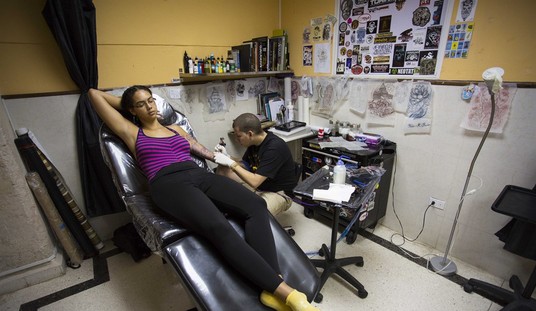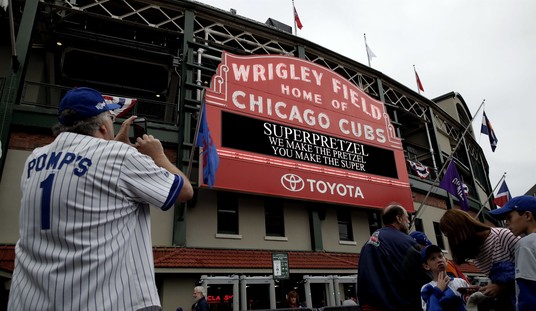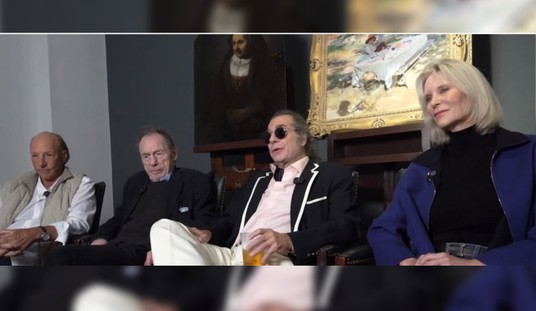August 10, 2012, marked the 1,200th day that the Obama administration has been running the United States of America without any approved budget and without any coherent foreign policy. It is no wonder that last September, when terrorists assassinated our ambassador to Libya and three of his subordinates, the White House scurried for cover behind Secretary of State Hillary Clinton and U.N. Ambassador Susan Rice. Both initially went out of their way to persuade the country that we were not dealing with terrorism, and when that didn’t fly, blamed the intelligence community. The farce was a deliberate diversion designed to throw dust in the country’s eyes, and it should be treated as such.
The fundamental task facing the U.S. today is not to find out who knew what about that despicable act of terrorism, but to establish why it was not prevented.
Preventing terrorism has been a primary national and international task since 1937, when the League of Nations adopted the first resolution on terrorism — the “Convention for the Prevention and Punishment of Terrorism.” Resolution No. 60/288 defining the U.N. Global Counter-Terrorism Strategy, adopted on September 8, 2006, states:
The international community should take the necessary steps to enhance cooperation to prevent and combat terrorism.
The 9/11 Commission Report spent most of its 567 pages on measures for preventing new terrorist attacks on American soil, which includes U.S. embassies. “Protecting the American people from terrorist threats is our founding principle and our highest priority,” states the logo of the Department of Homeland Security, which was created after 9/11. In 2008, the Heritage Foundation reported that 40 terrorist attacks had been foiled since 9/11. (They are detailed here.)
In his January 15, 2009, farewell address, President George W. Bush said:
[After 9/11] most Americans were able to return to life much as it had been before 9/11. But I never did.
…
Every morning, I received a briefing on the threats to our nation. I vowed to do everything in my power to keep us safe.
…
[T]here can be little debate about the results. America has gone more than seven years without another terrorist attack on our soil. This is a tribute to those who toil night and day to keep us safe — law enforcement officers, intelligence analysts, homeland security, diplomatic personnel, and the men and women of the United States Armed Forces.
Last year, Interpol Secretary General Robert K. Noble also reminded the world that prevention was the most important task in the field of terrorism:
As we honor the memories of those who perished 10 years ago, it is time to ask ourselves if we have done all that we can to prevent another 9/11 or other serious attack. A great deal has been done to make us all safer, but far too little to make sure that we are safe from the global terror and criminal threat.
This 75-year-old policy aimed at preventing terrorism has changed dramatically under the Obama administration. On May 4, 2011, even the Washington Post documented that the administration was dismantling the policies for preventing terrorism on U.S. soil:
In normal times, the officials who uncovered the intelligence that led us to Osama bin Laden would get a medal. In the Obama administration, they have been given subpoenas.
The Washington Post article, titled “Obama owes thanks, and an apology, to CIA interrogators,” further stated:
On his second day in office Obama shut down the CIA’s high-value interrogation program. His Justice Department then reopened criminal investigations into the conduct of CIA interrogators — inquiries that had been closed years before by career prosecutors who concluded that there were no crimes to prosecute. In a speech at the National Archives, Obama eviscerated the men and women of the CIA, accusing them of “torture” and declaring that their work “did not advance our war and counterterrorism efforts — they undermined them.”
The bankrupt government of Italy was the first to take advantage of the Obama administration’s war against the CIA. On September 2012, in what seemed to be an attempt to distract public attention from its economic troubles, Italy’s high court ruled that 23 CIA operatives and one U.S. Air Force officer should serve jail terms in Italy. The Italian government decided to enforce that decision. Their crime? They allegedly “kidnapped” Egyptian terrorist cleric Osama Moustafa Hassan Nasr from a Milan street in 2003.
The CIA is our first line of defense against terrorism and nuclear proliferation, and it should not be used to improve the stature of ambitious political figures. There are many ways a foreign intelligence service can lose trust, but there is nothing more devastating for it than hearing it is distrusted by its own country’s government and political leaders. Who will risk his life to confide secrets to it after that?
I know personally how difficult it is for high-ranking enemy officials to be persuaded to place their lives in the hands of an intelligence organization publicly distrusted by its own government. In 1975 I decided to defect to the CIA. As head of Romania’s foreign intelligence service, I was quite well-informed on all the counterpart services in the West, but none came even close to the CIA. I firmly trusted that organization, and I admired the efficiency of its secret war against the Soviet empire.
When I was ready to break with Communism, however, I got hit in the face by the Senate’s Church Commission reports. Frank Church, an unsuccessful candidate for the Democratic presidential nomination, had tried to restore his political stature by publicly bashing the CIA. After two years of so-called investigation, he published fourteen reports (50,000 pages of which have since been declassified) portraying the CIA as a criminal organization that cannot be trusted.
Thereupon, a cable sent to Bucharest from KGB chief Yuri Andropov triumphantly prophesied: “The CIA’s tyranny is over.” Romanian dictator Nicolae Ceausescu popped a bottle of champagne. A couple of months later I had dinner with Janos Kadar, the ruler of Hungary, who had been the first chief of its Communist intelligence service; he raised his glass of pálinka with a toast: “To the CIA’s funeral!”
The reports of the Church Commissions froze me in place, for a while. If the U.S. government did not trust its own CIA, why should I? It took me two more years to rebuild my trust in the CIA.
Of course, as a Romanian I was a mere pigmy on the CIA’s horizon, but the CIA nevertheless needs lots of such pigmies — from Russia, China, North Korea — in order to protect the United States against terrorist thugs and nuclear despots. Those little pigmies can see what satellites cannot: what our enemies have on their minds. How can the CIA get such pigmies to talk to them? By earning their trust, by proving it is not like the CIA portrayed to them in the vitriolic anti-American climate where they may live.
Trust is the most valuable asset of any intelligence service, no matter its nationality or political flavor. That is the most important thing I have learned in the 57 years I have spent in the foreign intelligence business. Let’s hope that, next November, the American people will bring to the White House a president who will restore the trust in the CIA and in the rest of our intelligence community.
In 1986, my good friend Michael Ledeen — at that time an anti-terrorism adviser for the Reagan administration — told me that the president was fed up with Qaddafi. President Reagan had proof that Qaddafi was behind the bombing of the La Belle discotheque in West Berlin, a popular hangout for American servicemen, where two American soldiers had been killed and some 200 people injured. Reagan, who called my book Red Horizons his “Bible for dealing with tyrants,” had learned from it that I had met Qaddafi several times in Benghazi and Tripoli. He sent Ledeen to me to obtain a minute description of his tents.
On April 15, 1986, U.S. warplanes attacked the Libyan cities of Benghazi and Tripoli, in the process also destroying the tents of Qaddafi and killing his adopted daughter. According to media reports, Qaddafi had left one of those tents just minutes before the U.S. attack.
That was prevention.
It took over twenty years before Qaddafi again showed his face to the world. In the process, he also gave up his ambitions to build weapons of mass destruction.
Americans are proud people who deeply love their country. Half a million Americans gave their lives to defeat Nazism and to end its lethal Holocaust. Afterward, the Americans defeated one of the most destructive dictatorships the world has ever known, the Soviet empire, which killed 94 million people and waged fifty long years of Cold War against freedom and democracy.
Soon after stepping into this new millennium, the U.S. was faced with another destructive evil: international terrorism. Let’s hope that next November the voters will bring to the White House a president who has the guts to define the problem — it is terrorism that threatens us today. Once America knows its new enemy, it will certainly defeat it.








Join the conversation as a VIP Member